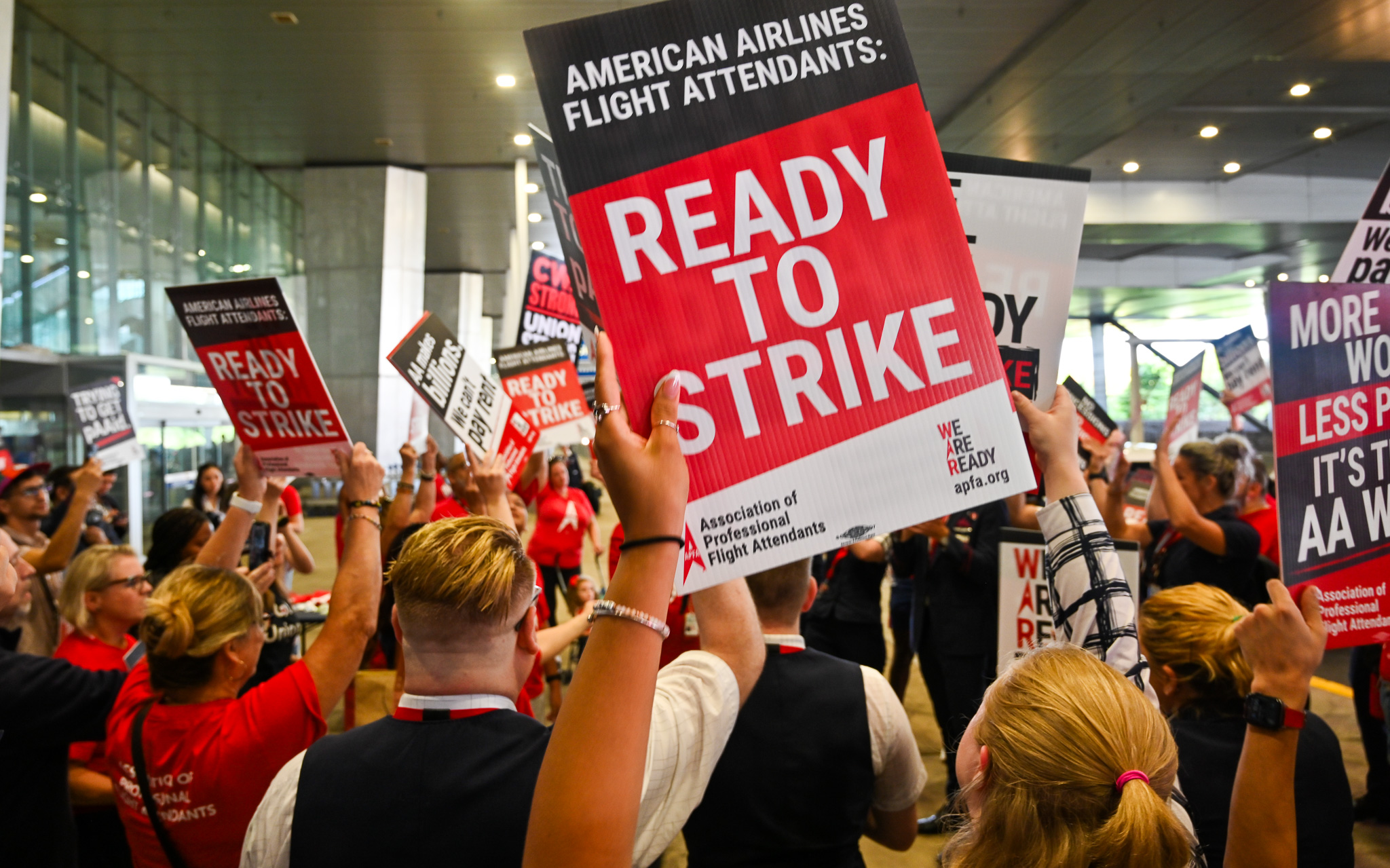In industries covered by the Railway Labor Act, federal regulations hostile to labor unions require mediators to rule that there is no point to further negotiations before mediators give the go-ahead for a strike. A 30-day cooling off period is then required. Additionally, the president or Congress can step in and block or delay a work stoppage.
However, the flight attendants’ willingness to strike for their rights takes place at a time when 88% of young workers in the U.S. support labor unions, according to @GBAOStrategies. The pro-union sentiments of most workers can be seen on the streets and in workplaces in many U.S. cities. Workers at unorganized shops, such as Starbucks, Amazon, Jollibee and other corporations are fighting for union recognition and contract agreements are at the highest rate in decades.
Encouraged by an unprecedented contract victory by Teamsters at UPS, 97% of workers in the United Auto Workers voted to authorize a strike. The union’s demands include a 46% wage increase, restoration of traditional pensions for all workers, return of the cost-of-living allowance, reducing the workweek to 32 hours from 40 and increasing retiree pensions.


